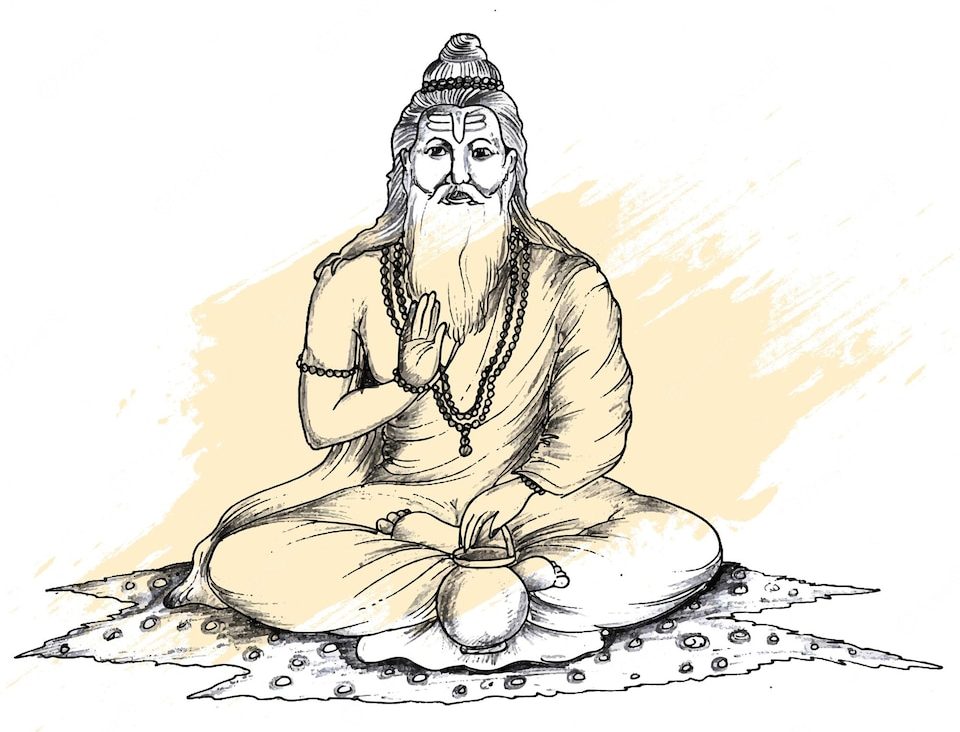
Maharishi Shantanu
The Noble King and Sage of Ancient India
Introduction:
Maharishi Shantanu is a prominent figure in Hindu mythology, known for his noble character, his illustrious reign as a king, and his contributions to Hindu culture. In this article, we will explore the details of his early life and education, his career as a sage and teacher, his relationship with the gods, his disciples, his contributions to Hindu culture, his legacy, an overview of his contribution in Hinduism, books associated with him, and a conclusion summarizing his significance.
Early Life and Education:
Maharishi Shantanu was born in the lunar dynasty, as the son of King Pratipa and Queen Sunanda. From a young age, he displayed exceptional qualities of wisdom, righteousness, and leadership. Shantanu received a comprehensive education in subjects like politics, administration, philosophy, and the Vedas. He was groomed to become a just and virtuous king, carrying the responsibility of ruling his kingdom with fairness and compassion.
Career as a Sage and Teacher:
Despite his role as a king, Maharishi Shantanu also embraced the path of a sage and teacher. He dedicated himself to the pursuit of spiritual knowledge and the dissemination of wisdom. Shantanu’s teachings emphasized the principles of dharma, moral values, and the importance of leading a righteous and ethical life. As a sage, he guided and mentored his subjects, imparting knowledge and guiding them towards a harmonious and meaningful existence.
Relationship with Gods:
Maharishi Shantanu had a deep reverence for the gods and maintained a strong connection with them. His devotion and piousness earned him their blessings and guidance. He was known for his unwavering faith in divine principles and his commitment to upholding dharma. Shantanu’s relationship with the gods influenced his decision-making as a king and his approach to governance, always seeking the welfare and well-being of his subjects.
Other Disciples:
While Maharishi Shantanu’s disciples are not extensively mentioned in Hindu scriptures, it is believed that he had a group of devoted students who sought his wisdom and guidance. These disciples imbibed his teachings and carried forward his legacy, spreading his teachings and upholding the values he espoused.
Contributions to Hindu Culture:
Maharishi Shantanu’s contributions to Hindu culture lie in his embodiment of virtuous and righteous leadership. His reign as a king set an example of just governance and compassionate rule. Shantanu’s teachings on dharma and ethical conduct continue to influence individuals in their personal and societal lives. His commitment to upholding moral values and his emphasis on the well-being of his subjects have left a lasting impact on Hindu society.
Legacy:
Maharishi Shantanu’s legacy as a noble king and sage highlights the importance of virtuous leadership and the integration of spirituality and governance. His reign exemplified the harmonious coexistence of worldly duties and spiritual pursuits. Shantanu’s life serves as a reminder that true success lies in the balanced pursuit of material prosperity and spiritual growth. His contributions to Hinduism lay in his embodiment of dharma and his teachings on righteous conduct and governance.
Books Written by Him:
There are no specific books attributed to Maharishi Shantanu. However, his wisdom and teachings are mentioned in various Hindu scriptures, including the Mahabharata and the Puranas. These texts recount the incidents, conversations, and teachings involving Shantanu, offering insights into his profound understanding of dharma and his role as a noble king and sage.
Conclusion:
Maharishi Shantanu, the noble king and sage, epitomized virtuous leadership, righteous governance, and the integration of spirituality and worldly duties. His life and teachings continue to inspire individuals to lead a life rooted in dharma, morality, and compassion. Maharishi Shantanu’s contributions to Hindu culture, his commitment to upholding moral values, and his legacy as a just ruler and wise sage make him a revered figure in Hindu mythology. By following his example, individuals can strive to bring harmony, righteousness, and spiritual well-being into their lives and society as a whole.
Editor – Kaalchakra Team
[ Note – Before Concluding anything as a Finale, Please Go through Original Scriptures of Vaidik Literature Written in Sanskrit and Also with Meaning of That time of Language. Because English is a Limited language to Explaining the Deeper Knowledge of Vaidik Kaal. ]
